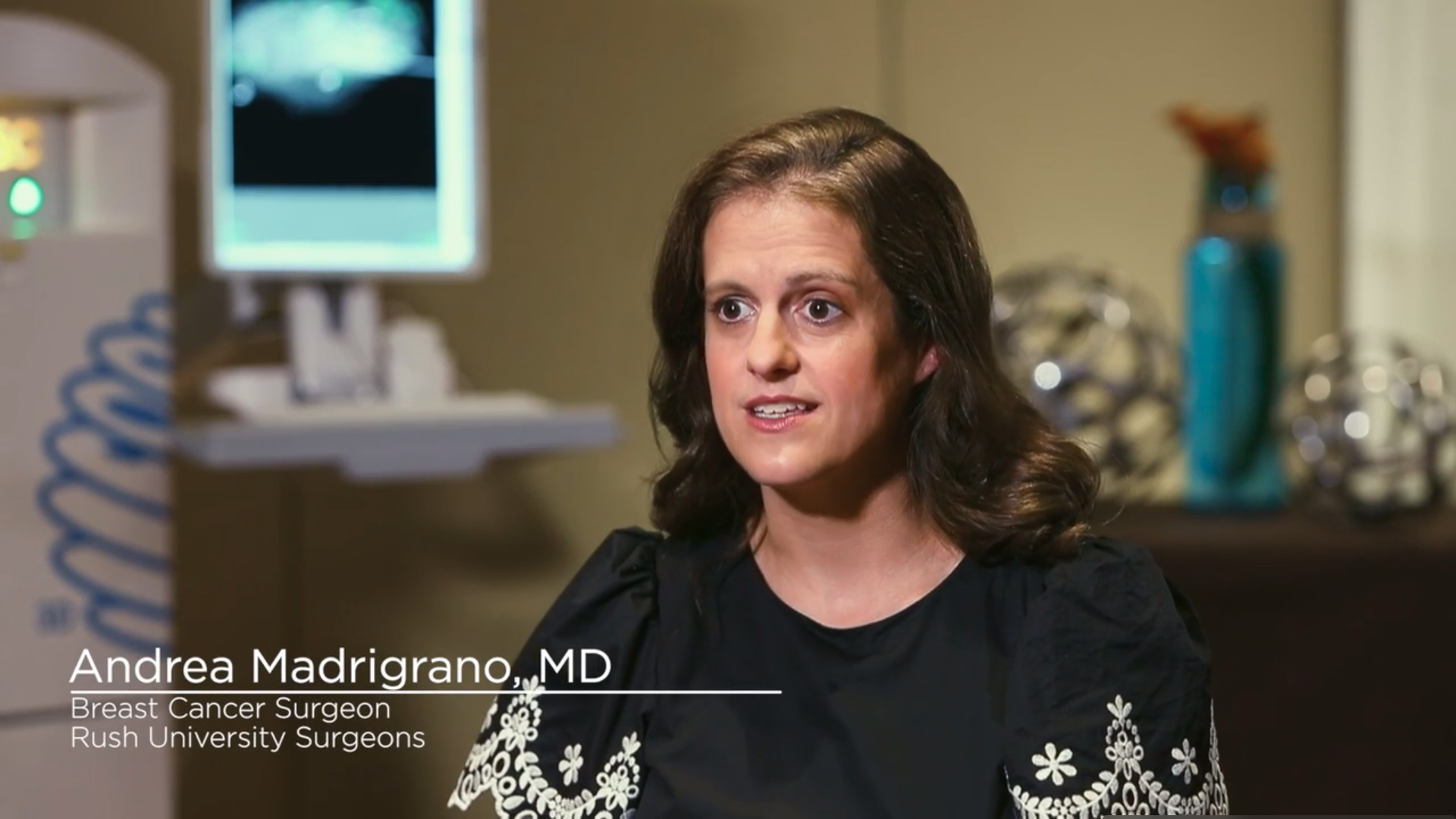
By Andrea Madrigrano, MD, Breast Surgeon at Rush University Medical Center in Chicago and Associate Professor in the Department of Surgery at Rush Medical College; Kubtec Medical Imaging, The Mozart®
Receiving a breast cancer diagnosis is a confusing and traumatic experience for patients. Understanding what to expect prior to, during and after surgery, and knowing that a highly skilled surgeon will perform the operation can help reassure patients that they made the best possible choice for their cancer treatment.
The lumpectomy procedure (sometimes referred to as Breast Conserving Surgery, or BCS) is the treatment of choice for many patients, especially those with early-stage breast cancer. The surgeon seeks to remove the malignant tumor, while leaving behind as much healthy breast tissue as possible. Studies show that this procedure is as effective as mastectomy (complete removal of the breast) at treating the disease, preserving much of the appearance and sensation of the breast.
Although lumpectomy surgery for breast cancer is a remarkably advanced and effective treatment, there are a number of topics patients should discuss with their doctors. For instance, a woman considering a lumpectomy may be unaware that in 20% of cases, a second surgery will be needed to remove lingering cancer cells.
The last thing a breast cancer patient wants to hear after the stress of having her first lumpectomy procedure is that the surgeon did not remove the full tumor and that she needs to have a second surgery, also known as re-excision. But how do you lower the risk of re-excision during lumpectomies? What do you need to know about your surgeon and the facility where the surgery takes place? And what happens after the surgery?
Below are eight questions patients should ask their surgeons prior to surgery.
- How many breast cancer cases does the surgeon handle each year? How many mastectomies vs. lumpectomies does the surgeon perform and why? A second opinion can provide patients a more balanced and complete understanding of their options.
- What is the surgeon’s re-excision rate? Nationwide figures show that one in five women undergoing lumpectomy will need a second procedure to remove lingering cancer cells. Many experts find this figure unacceptable. But re-excision rates can vary greatly from doctor to doctor and facility to facility.
- It’s also important to consider variables when talking about re-excision rates. Some surgeons will do more mastectomies and thus have lower re-excision rates. Others will remove a large volume of tissue. There needs to be a balance of removing enough tissue to remove the cancer, while not removing too much tissue, which can leave the breast smaller and mis-shaped. The best surgeons will have both a low re-excision rate and low mastectomy rate and will remove the least amount of tissue possible. Some lumpectomies can be done with the help of a plastic surgeon to re-shape the other breast so that they match.
- Does the surgeon use intra-operative 3D specimen tomosynthesis imaging? 3D tomography has become the standard of care in mammography for screening. It is now also available to surgeons in the operating room, thus enabling a more precise surgery. Using 3D tomography during surgery has helped even very skilled surgeons increase their precision and reduce their re-excision rates even more.
- This is state-of-the art technology that enables the surgeon to the visualize the tumor right in the operating room, which no other technology or technique allows.
- In a recent study by researchers at UT Southwest Medical Center in Houston, surgeons reported that use of the 3D tomography technology during breast cancer surgery reduces re-excisions by more than 50 percent compared to the traditional 2D imaging methods commonly in use. This improvement translated into decreased returns to the operating room, decreased anxiety levels, and less costs to patients.
- It also saves on time in the operating room, because the surgeon does not have to wait while a specimen is taken to a separate radiology area for analysis. Evidence indicates that using 3D tomography during surgery can reduce a lumpectomy procedure by as much as 15 minutes, which for a patient means less time under anesthesia.
- Does the surgeon use multi-disciplinary imaging review? Does the surgeon look at the images, not just the reports, with a radiologist in person? This in-person assessment is incredibly helpful for planning.
- What is the post-operative pain plan? This is especially important in the current landscape, where doctors are faced with growing pressure to minimize opioid use but still provide patients with good pain control.
- Is the facility a National Cancer Institutes-designated cancer center?
- How well trained is the surgeon? Patients need to know more about their surgeons than whether they are board certified and where they performed their residency. Fellowship trained breast surgeons are recognized as experts in their ability to provide superior diagnosis and care related to breast cancer and disease.
- Will the patient’s case be presented in a multidisciplinary breast cancer conference? Breast cancer is not a single disease, with only one approach to treatment. That’s why every woman has a different journey in her treatment. Some women are cured with surgery alone, while other women require aggressive surgery, chemotherapy, radiation and targeted treatment to hopefully cure their disease. Multidisciplinary Care involves input of medical oncologists, surgeons, radiation oncologists, pathologists and radiologists in determining the best treatment plan for a patient.
- This is important because some patients require medical treatment, or chemotherapy prior to surgery. In patients who have larger tumors, or tumors that have been found to have already spread to the lymph nodes, they benefit from treatment before surgery to help shrink the tumor and make surgery less involved. More importantly, chemotherapy is used to reduce the chance that cancer can metastasize and some patients have better survival if the treatment is given prior to surgery.
Being fully informed arms breast cancer patients to make the best-possible choices for their treatment, and can have profound effects on recovery. Having the right information can assure patients they are being treated by the most highly qualified cancer care team, which includes using the most advanced surgical techniques and technologies available.
